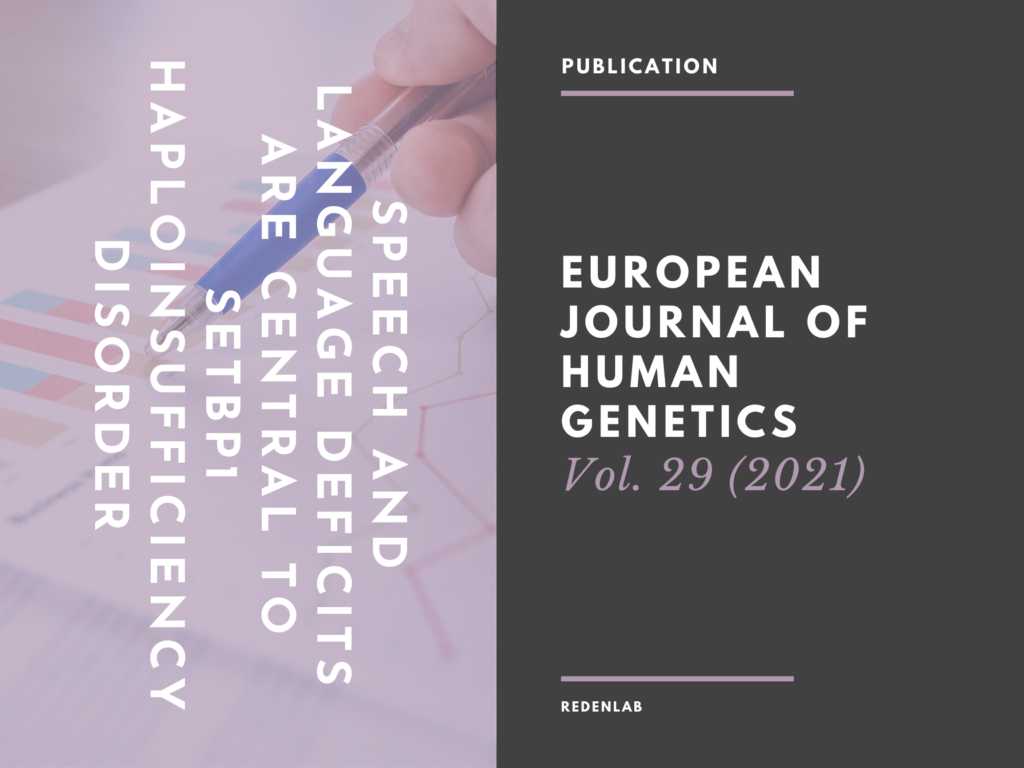Expressive communication impairment is associated with haploinsufficiency of SETBP1, as reported in small case series. Heterozygous pathogenic loss-of-function (LoF) variants in SETBP1 have also been identified in independent cohorts ascertained for childhood apraxia of speech (CAS), warranting further investigation of the roles of this gene in speech development. Thirty-one participants (12 males, aged 0; 8–23; 2 years, 28 with pathogenic SETBP1 LoF variants, 3 with 18q12.3 deletions) were assessed for speech, language and literacy abilities. Broader development was examined with standardised motor, social and daily life skills assessments. Gross and fine motor deficits (94%) and intellectual impairments (68%) were common. Protracted and aberrant speech development was consistently seen, regardless of motor or intellectual ability. We expand the linguistic phenotype associated with SETBP1 LoF syndrome (SETBP1 haploinsufficiency disorder), revealing a striking speech presentation that implicates both motor (CAS, dysarthria) and language (phonological errors) systems, with CAS (80%) being the most common diagnosis. In contrast to past reports, the understanding of language was rarely better preserved than language expression (29%). Language was typically low, to moderately impaired, with commensurate expression and comprehension ability. Children were sociable with a strong desire to communicate. Minimally verbal children (32%) augmented speech with sign language, gestures or digital devices. Overall, relative to general development, spoken language and literacy were poorer than social, daily living, motor and adaptive behaviour skills. Our findings show that poor communication is a central feature of SETBP1 haploinsufficiency disorder, confirming this gene as a strong candidate for speech and language disorders.
Click here for more details

